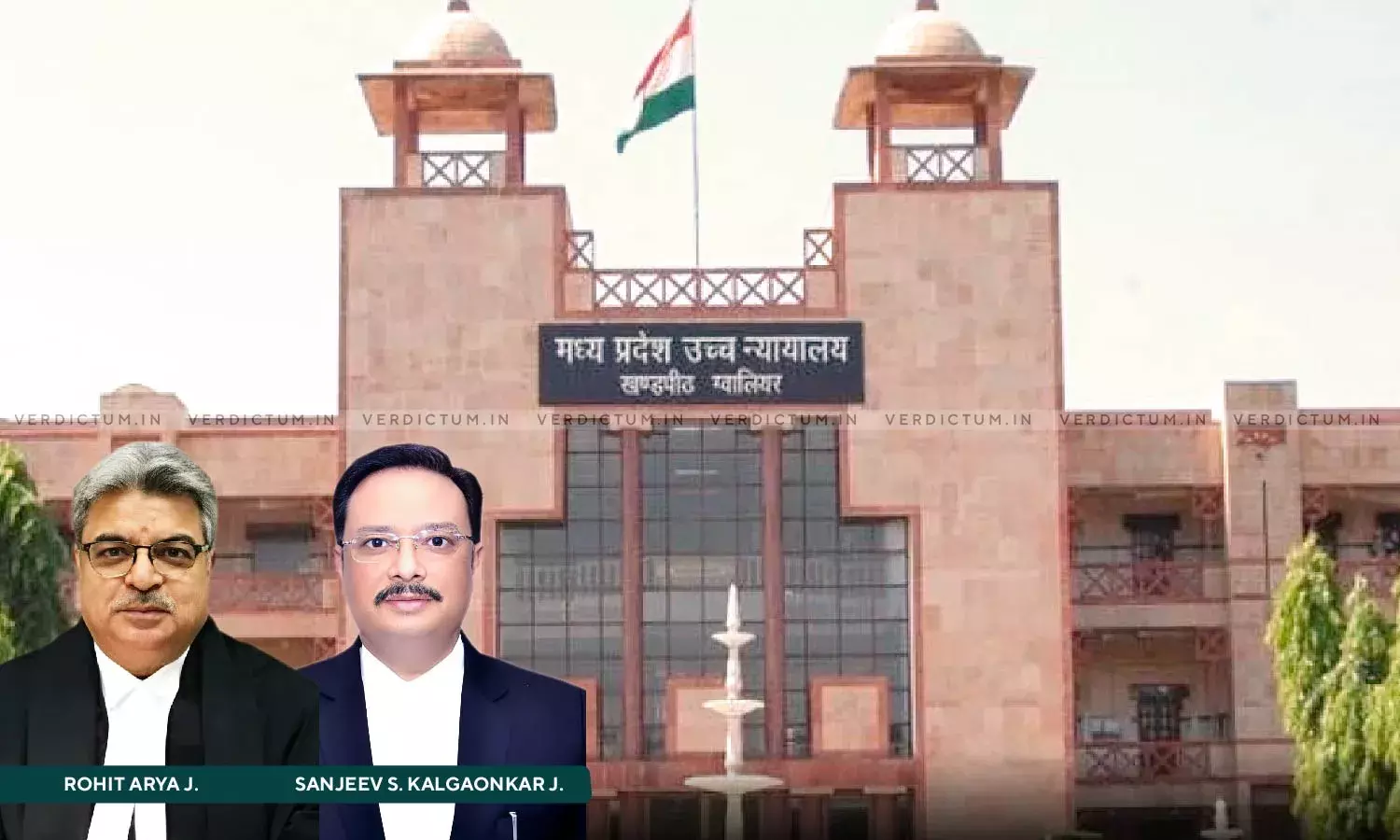Wife Is Free To Financially Support Her Parents; Any Objection By Husband Amounts To Cruelty: Madhya Pradesh HC

The Madhya Pradesh High Court observed that the wife is always free to support her parents financially and any objection in this regard by the husband amounts to cruelty.
The Court was hearing an appeal by the husband under Section 19 of the Family Courts Act, 1984 against a decree of divorce by the lower Court.
The bench of Justice Rohit Arya and Justice Sanjeev Kalgaonkar rejected the argument of the husband that owing to the greed of her parents nuptial ties were severed and observed, “Trial Court in this regard has rightly found that being a daughter, the respondent/wife was always free to financially support her parents and if there was any objection in this behalf of the appellant/husband, the same in fact amounted to cruelty.”
Advocate H.K. Shukla appeared for the appellant and Advocate S.S. Gautam appeared for the Respondent.
Brief Facts-
The appellant and respondent entered into marriage in 2002. In 2010 the wife made a petition under Section 13 of the Hindu Marriage Act, 1955 in Family Court on the ground that her husband deceived her about his profession that he is a CA. It was also mentioned that she was financially exploited by him as he only wanted to live a luxurious life on his wife’s income. It was also alleged that he abused her, and exerted control over her. She claimed instances of assault, coercion, and financial manipulation, asserting that he withheld her possessions and earnings. In rebuttal, the husband contested these accusations, maintaining that they cohabited and jointly acquired assets.
The wife pleaded that her husband had no source of earnings and did not do any work. It was alleged that he subjected her to intense mental suffering and torture. She prayed for a decree of divorce.
The trial Court found that the appellant had subjected the respondent to cruelty as defined under Section 13(1)(a) of the Act and granted the decree of divorce. Hence, the present appeal.
The Court noted that the appellant had admitted that he had never been in any Government job from 2002 till date. He also admitted that he had neither any income nor had he filed any income tax return nor had he any movable or immovable property in his name.
The Court also noted that the trial Court found that the professional commitments of the appellant were being settled by the respondent.
The Court further noted the hardship the wife had to face at work because of the appellant and stated that the trial Court rightly emphasised that the various complaints by the husband to officials reflected that he treated his wife as a slave having no identity of her own and soliciting that she should not have been given any job without his permission. According to the Court, this in itself was sufficient evidence of cruelty.
The Court also noted the failure on the part of the husband to provide any cogent evidence as to his regular income to do away with the allegations that he was only dependent on the income of his wife.
The Court relied on the decision of the Supreme Court in A. Jayachandra v. Aneel Kaur, (2005) 2 SCC 22 and quoted, “Cruelty need not be physical. If from the conduct of the spouse, the same is established and/or an inference can be legitimately drawn that the treatment of the spouse is such that it causes an apprehension in the mind of the other spouse, about his or her mental welfare then this conduct amounts to cruelty. In a delicate human relationship like matrimony, one has to see the probabilities of the case. The concept of proof beyond the shadow of doubt is to be applied to criminal trials and not to civil matters and certainly not to matters of such delicate personal relationship as those of husband and wife. Therefore, one has to see what are the probabilities in a case and legal cruelty has to be found out, not merely as a matter of fact, but as the effect on the mind of the complainant's spouse because of the acts or omissions of the other.”
“The marriage is indeed irretrievably broken,” Court stated.
According to the Court, it is well settled that where there has been a long period of continuous separation, it may be concluded that the matrimonial bond is beyond repair and by refusing to sever that tie, the law does not serve the sanctity of marriage on the contrary, it shows scant regard for the feelings and emotions of the parties.
Consequently, the Court found that cruelty as alleged was well proved against the appellant/husband.
Finally, the Court dismissed the appeal.
Cause Title: X v. Y
Appearance:
Appellant: Adv. H.K. Shukla
Respondent: Adv. S.S. Gautam

